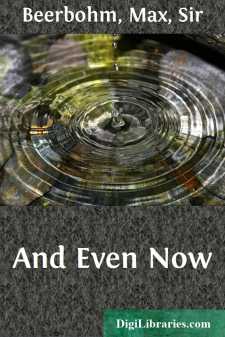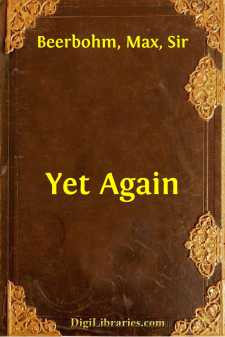Categories
- Antiques & Collectibles 13
- Architecture 36
- Art 48
- Bibles 22
- Biography & Autobiography 816
- Body, Mind & Spirit 145
- Business & Economics 28
- Children's Books 17
- Children's Fiction 14
- Computers 4
- Cooking 94
- Crafts & Hobbies 4
- Drama 346
- Education 58
- Family & Relationships 59
- Fiction 11834
- Foreign Language Study 3
- Games 19
- Gardening 17
- Health & Fitness 34
- History 1378
- House & Home 1
- Humor 147
- Juvenile Fiction 1873
- Juvenile Nonfiction 202
- Language Arts & Disciplines 89
- Law 16
- Literary Collections 686
- Literary Criticism 179
- Mathematics 13
- Medical 41
- Music 40
- Nature 179
- Non-Classifiable 1768
- Performing Arts 7
- Periodicals 1453
- Philosophy 66
- Photography 2
- Poetry 897
- Political Science 203
- Psychology 45
- Reference 154
- Religion 516
- Science 126
- Self-Help 85
- Social Science 82
- Sports & Recreation 34
- Study Aids 3
- Technology & Engineering 59
- Transportation 23
- Travel 463
- True Crime 29
Our website is made possible by displaying online advertisements to our visitors.
Please consider supporting us by disabling your ad blocker.
Enoch Soames: a memory of the eighteen-nineties
by: Max Beerbohm
Categories:
Description:
Excerpt
When a book about the literature of the eighteen-nineties was given by Mr. Holbrook Jackson to the world, I looked eagerly in the index for Soames, Enoch. It was as I feared: he was not there. But everybody else was. Many writers whom I had quite forgotten, or remembered but faintly, lived again for me, they and their work, in Mr. Holbrook Jackson's pages. The book was as thorough as it was brilliantly written. And thus the omission found by me was an all the deadlier record of poor Soames's failure to impress himself on his decade.
I dare say I am the only person who noticed the omission. Soames had failed so piteously as all that! Nor is there a counterpoise in the thought that if he had had some measure of success he might have passed, like those others, out of my mind, to return only at the historian's beck. It is true that had his gifts, such as they were, been acknowledged in his lifetime, he would never have made the bargain I saw him make—that strange bargain whose results have kept him always in the foreground of my memory. But it is from those very results that the full piteousness of him glares out.
Not my compassion, however, impels me to write of him. For his sake, poor fellow, I should be inclined to keep my pen out of the ink. It is ill to deride the dead. And how can I write about Enoch Soames without making him ridiculous? Or, rather, how am I to hush up the horrid fact that he WAS ridiculous? I shall not be able to do that. Yet, sooner or later, write about him I must. You will see in due course that I have no option. And I may as well get the thing done now.
In the summer term of '93 a bolt from the blue flashed down on Oxford. It drove deep; it hurtlingly embedded itself in the soil. Dons and undergraduates stood around, rather pale, discussing nothing but it. Whence came it, this meteorite? From Paris. Its name? Will Rothenstein. Its aim? To do a series of twenty-four portraits in lithograph. These were to be published from the Bodley Head, London. The matter was urgent. Already the warden of A, and the master of B, and the Regius Professor of C had meekly "sat." Dignified and doddering old men who had never consented to sit to any one could not withstand this dynamic little stranger. He did not sue; he invited: he did not invite; he commanded. He was twenty-one years old. He wore spectacles that flashed more than any other pair ever seen. He was a wit. He was brimful of ideas. He knew Whistler. He knew Daudet and the Goncourts. He knew every one in Paris. He knew them all by heart. He was Paris in Oxford. It was whispered that, so soon as he had polished off his selection of dons, he was going to include a few undergraduates. It was a proud day for me when I—I was included. I liked Rothenstein not less than I feared him; and there arose between us a friendship that has grown ever warmer, and been more and more valued by me, with every passing year.
At the end of term he settled in, or, rather, meteoritically into, London. It was to him I owed my first knowledge of that forever-enchanting little world-in-itself, Chelsea, and my first acquaintance with Walter Sickert and other August elders who dwelt there. It was Rothenstein that took me to see, in Cambridge Street, Pimlico, a young man whose drawings were already famous among the few—Aubrey Beardsley by name. With Rothenstein I paid my first visit to the Bodley Head. By him I was inducted into another haunt of intellect and daring, the domino-room of the Cafe Royal.
There, on that October evening—there, in that exuberant vista of gilding and crimson velvet set amidst all those opposing mirrors and upholding caryatids, with fumes of tobacco ever rising to the painted and pagan ceiling, and with the hum of presumably cynical conversation broken into so sharply now and again by the clatter of dominoes shuffled on marble tables, I drew a deep breath and, "This indeed," said I to myself, "is life!" (Forgive me that theory....



















